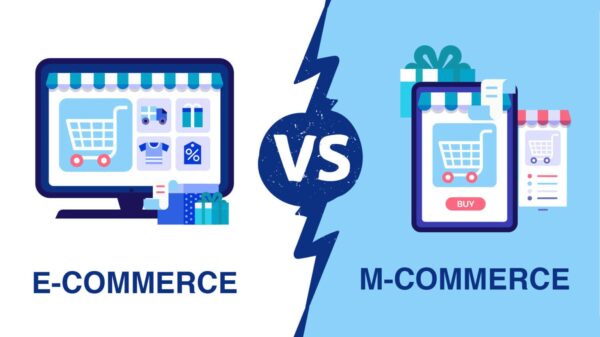Meeting customer expectations and creating a seamless transition between channels is certainly one of the most important challenges in the retail market. This automatically directs the focus on the payment process. Customers need to be able to quickly get information, shop, and pay.
With the help of an optimal payment strategy and a suitable payment provider (i.e. meeting the requirements of the strategy), key figures such as sales and costs can be directly managed. A flexible and simple payment process favors a higher conversion rate (percentage of the visitors to a shop making a transaction). Costs can also be optimized by choosing an appropriate payment provider. Therefore, it is worthwhile to carry out a payment provider comparison.
 Has the payment service provider experience in your industry branch?
Has the payment service provider experience in your industry branch?
While most providers have clients from various industry branches, some have specialized in specific sectors such as aviation or gaming. There are risk industries such as gaming or adult entertainment, that are only served by a few providers. In addition, the shopping basket size or various payment options such as installment payment or subscription payments can also play a role in the selection.
 What payment methods does the payment service provider have in the portfolio?
What payment methods does the payment service provider have in the portfolio?
The selection of the relevant payment methods should be based on a detailed analysis of the target group and their payment preferences. The payment process is an important interaction process between the dealer and the customer, which directly affects customer loyalty. Customers unsatisfied by their options might terminate the payment process.
Credit cards
Globally, credit cards were the second preferred payment method in 2016, with 25% of ecommerce transactions. However, the popularity of this payment method is expected to gradually fade (20% of transactions in 2020). Because of their popularity, most online merchants optimize their shops to offer this payment method.
Debit cards
Last year, debit cards were used, on a global scale, to pay 17% of all online transactions. This payment method can be used to process a payment without any delays, or at a preselected time, making it especially popular for subscriptions or installments (paying the due sum in smaller amounts weekly or monthly).
Bank transfers
One out of ten online transactions were, globally, paid by bank transfers in 2016. The customer choosing this method will transfer the funds online to the provider or directly to the merchant. Also called Invoice payments, this method is the most popular in Germany.
E-Wallet
In 2016, roughly a third of online transactions were made using eWallets, making it overall the most popular payment method. Paypal is the world leader eWallet provider. While the advantages of this payment method offer a high conversion rate, it can be relatively expensive for merchants.
Cash on delivery
Worldwide, 7% of online purchases were paid on delivery last year. A popular alternative to online payments, this method allows the customer to pay for their order when it is delivered. Otherwise, the goods are returned to the merchant.
Prepaid cards
While this method was globally only used in 3% of online payments in 2016, its predominance for specific markets or products makes it a major player in ecommerce. Furthermore, it is expected to gain in popularity, doubling its presence by 2020. This payment method, which can be used both online and in shops, has the advantages of being immune to fraud and chargebacks. It is very popular in countries with low credit card penetration and among younger demographics possessing no cards or bank account.
According to a study by Edgar, Dunn & Company, 76% of retailers plan to introduce a new payment method over the next two to three years. Therefore, future needs should also be considered.
 Which distribution channels can be managed by the provider?
Which distribution channels can be managed by the provider?
Most payment service providers cover classic e-commerce. Less common order channels include telephone or e-mail (MOTO), in shop terminals (POS), mobile devices (mPOS) or mobile phones and tablets (M-Commerce). It is getting more important for merchants to optimize their shops to allow a seamless customer experience, therefore some payment service providers might offer cross-channel payments. For example, customers getting advice in the shop but then buying online via their mobile phone would be displayed in the system and used for customer loyalty.
 In which markets do the Payment Service Provider process payments?
In which markets do the Payment Service Provider process payments?
When entering a new market, a vendor should be able to cover the most important payment methods in the country. Payment preferences vary strongly from country to country. For example, in Germany, payment via invoice is one of the preferred payment methods (38% of online purchases). In comparison, in the United States, credit cards are widely used to pay online (34% of online transactions), whereas payment via invoice is largely unknown. Similarly, in countries with a low credit card penetration, cash on delivery and prepaid cards can be interesting options for online shops. For example, in the United Arab Emirates these two payment methods are used for, respectively 19% and 9% of all online transactions, around 3 times more as their global usage.
Coverage is therefore dependent on the location of the company’s headquarter and which countries’ market shall be sold to. Conversion rates increase based on the acquiring network the PSP has in the country. In the case of markets with other currencies, the question arises as to which currency can be sold and disbursed.
 Do the provider offer hosted or integrated payment gateways?
Do the provider offer hosted or integrated payment gateways?
There are two types of payment gateways; hosted (off-site) or integrated. The former will redirect customer completing a transaction to the gateways’ platform (e.g. PayPal), whereas the latter will be functioning directly in the shop’s website through a plugin. Both types of gateways have advantages and disadvantages, therefore, it is really a matter of finding what’s best for you.
Hosted gateways are great for new businesses, as they are easily set up and security measures are the responsibility of the provider. However, if the processor is not well known from the customer base, the conversion rate might suffer from this choice.
Integrated gateways have the advantage of offering a smooth, seamless experience to the customer, as they never leave the merchant’s website. This method is especially interesting when the payment provider’s plugin is compatible with the shop system already in use, as it integration makes much faster and cheaper. However, all security and regulations matter is now the responsibility of the shop.
 Does the payment service provider the product requirements?
Does the payment service provider the product requirements?
The type of products marketed might also influence the choice of a payment service provider. A company selling expensive goods, such as furniture of electronics, might increase their sale by offering the possibility to pay by installments. Similarly, businesses selling digital goods (e.g. songs) need a provider supporting micropayments. Some other product type might require split-payment. For example, travel agency selling tours to their customers then need to split the payment between their various partners (hotel, airline, etc.). Marketplaces need the payment provider to overtake the collection and distribution of funds.
 What measures are available to prevent fraud?
What measures are available to prevent fraud?
The protection against fraud and data misuse is of the utmost importance for the merchants as well as for the customers. To counter fraud in real time, merchants use various credit and identity checks. These are, for example, used to identify incorrect postal or e-mail addresses, filter out stolen account data, or recognize negative credit-worthiness via blacklists.
 What are the other benefits for the dealer?
What are the other benefits for the dealer?
Additional services from the Payment Service Provider should also be taken into account. While these cannot be precisely estimated but can be considered as hidden costs. For this reason, it is advisable, for example, to monitor how the provider’s customer service is structured, how easily it can be reached (e.g. 24/7 hotline or online chat), which languages are spoken. Other services offered by payment service providers might include subscriptions or recurring customer functions, billing, payment monitoring, debt collection notices or currency conversion management.
An extensive, independent and reliable reporting facilitates the choice of an appropriate payment service provider. “Merchants face many challenges in a fast-changing and highly competitive market, with the choice of a suitable payment provider, dealers can create a strong competitive advantage,” says Julia Houben, Managing Director of Paylobby.com – Paylobby is a fast, free and non-committal PSP comparison portal.
International Business Development Manager at Paylobby


























































































































































































